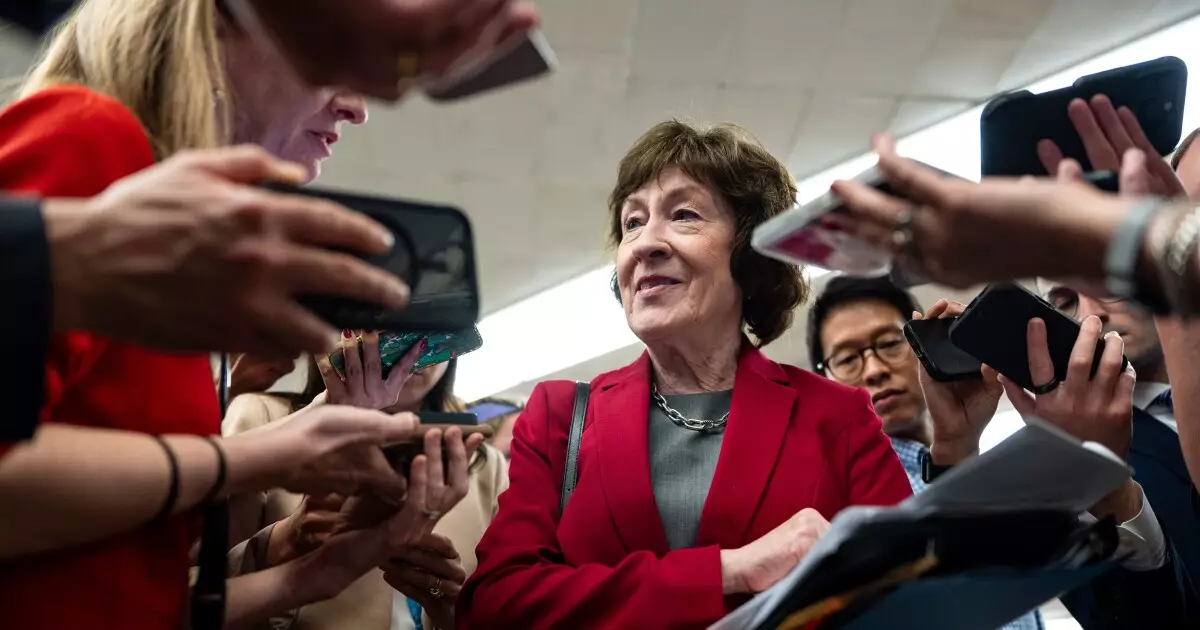The recent Senate approval of three appropriations bills for 2026 presents a superficially promising step towards legislative productivity. Yet, beneath this façade lies a fragile consensus backed by political necessity rather than genuine cooperation. While Senate leaders heralded this as a milestone—highlighting the passage of bills ahead of the August recess—the reality reveals a legislative process riddled with compromise, delay, and looming uncertainty. The fact that only nine of twelve fiscal appropriations are settled underscores how little progress has been made in translating bipartisan rhetoric into substantive policy. This maneuver, although commendable on the surface, masks the underlying dysfunction that continues to threaten effective governance.
The Mirage of Bipartisan Success
This bipartisan effort, involving both Democratic and Republican senators, is more symbolic than substantive. The claims of exercising “constitutional responsibility” resonate as empty rhetoric when critical bills remain unsigned and negotiations stall over core policy disagreements. For instance, the inability to include the Commerce-Justice-Science bill due to disagreements over FBI headquarters location reflects the deep partisan divisions still influencing even the most routine funding measures. Furthermore, some may see this staged cooperation as a strategic ploy—an attempt to project unity while behind the scenes, entrenched interests and political posturing hinder genuine progress.
Impending Disaster: The Threat of a Government Shutdown
Despite these legislative accomplishments, a dark cloud persists. The unfulfilled appropriations leave the government operating under a continuing resolution, a stopgap measure that postpones tough decisions. If Congress fails to reach a comprehensive agreement by September 30, a government shutdown looms. Such shutdowns are not mere administrative inconveniences—they jeopardize vital services across infrastructure, health, energy, and local governance, especially as the municipal bond market faces additional risks. These automatic cuts, triggered by sequestration measures signed into executive order, threaten to undercut essential investments, making it even harder for states and cities to recover from existing economic pressures.
Political Motivations and Fiscal Realities
The partisan divide is further exemplified by how appropriations bills have become battlegrounds for ideological battles. Democrats emphasize the importance of congressional control over spending—criticizing the Trump administration’s use of impoundments and rescissions—while Republicans often frame these issues as fiscal discipline necessary for economic stability. The slight increases in spending—ranging from 1% to 5%—are presented as progress, but they fall short of fully addressing inflation, inflationary pressures, or the need for sustained investment in infrastructure and social services. The fiscal consensus is fragile, and the political will to confront difficult funding choices remains lacking.
Market and Policy Implications
In economic terms, unresolved appropriations threaten more than just government operations. The municipal bond market, especially for direct-pay bonds like Build America Bonds, faces automatic reductions in funding if a bill isn’t enacted. The specter of sequestration—slashing nearly 6% from direct-paid bonds—adds another layer of risk for investors and local governments relying on these funds for essential projects. Meanwhile, the broader economic impact is an erosion of confidence in fiscal management, which could lead to higher borrowing costs and reduced economic growth at a time when stability should be paramount.
While the bipartisan passage of some appropriations bills might be hailed as a centrist achievement, it ultimately exposes the core weakness of American governance. The bipartisan gesture is less about collaboration and more about political expedience, designed to stave off crises rather than solve them. The real test will come in September and October as lawmakers grapple with the mounting pressure of unresolved funding—an issue that no amount of political theater can obscure. Until genuine reform and commitment to fiscal discipline are prioritized over short-term political wins, the cycle of crises and band-aids will continue, undermining trust in the legislative process.

